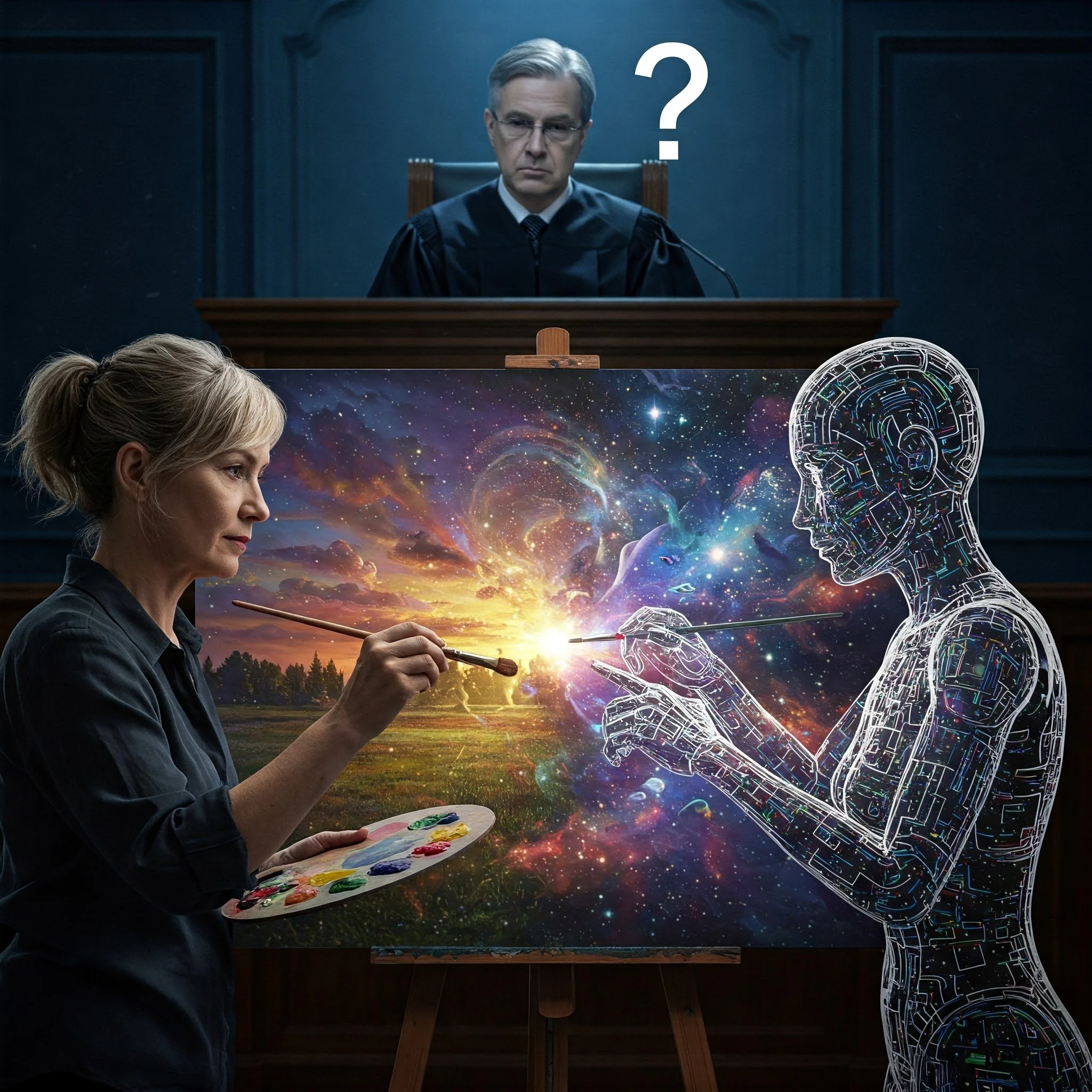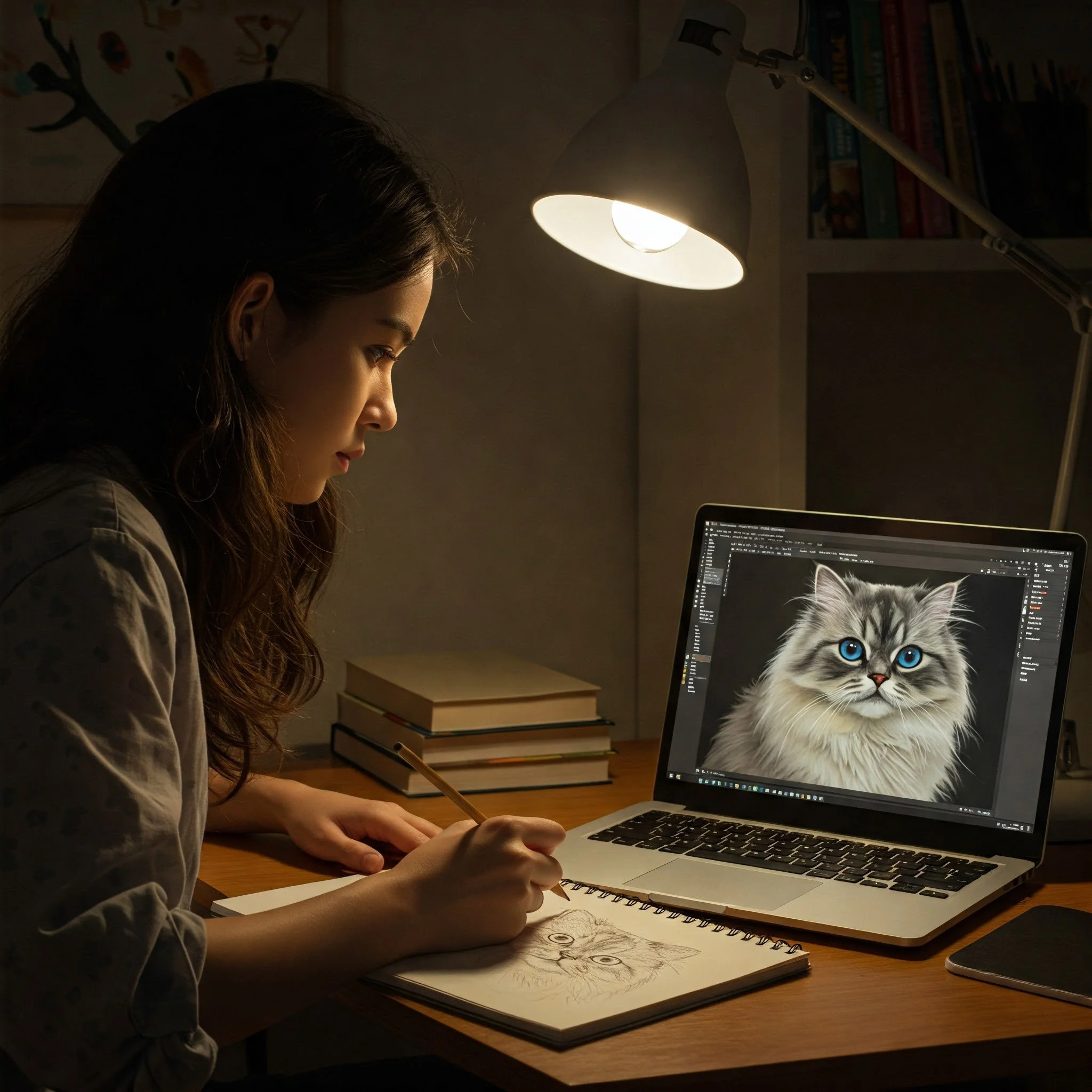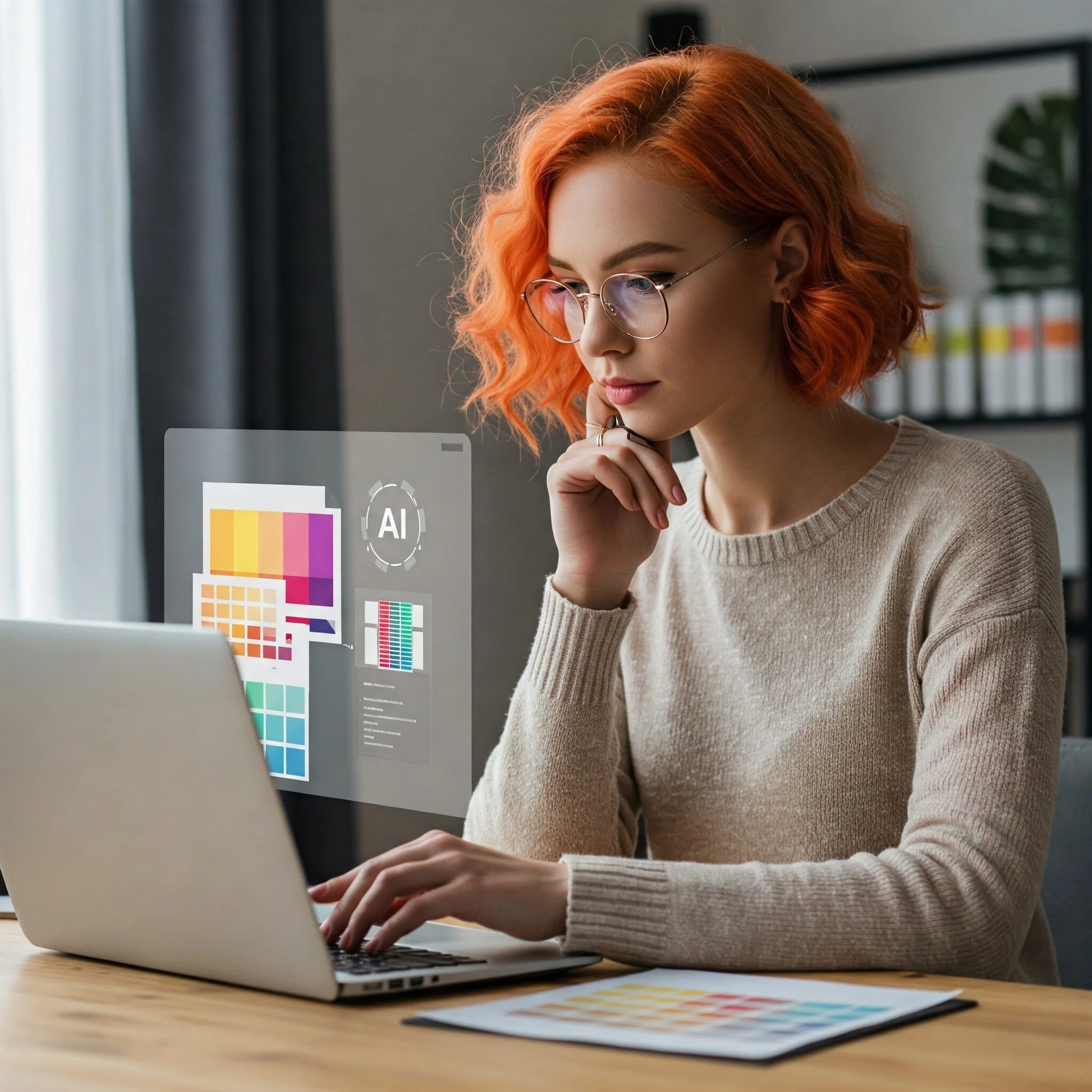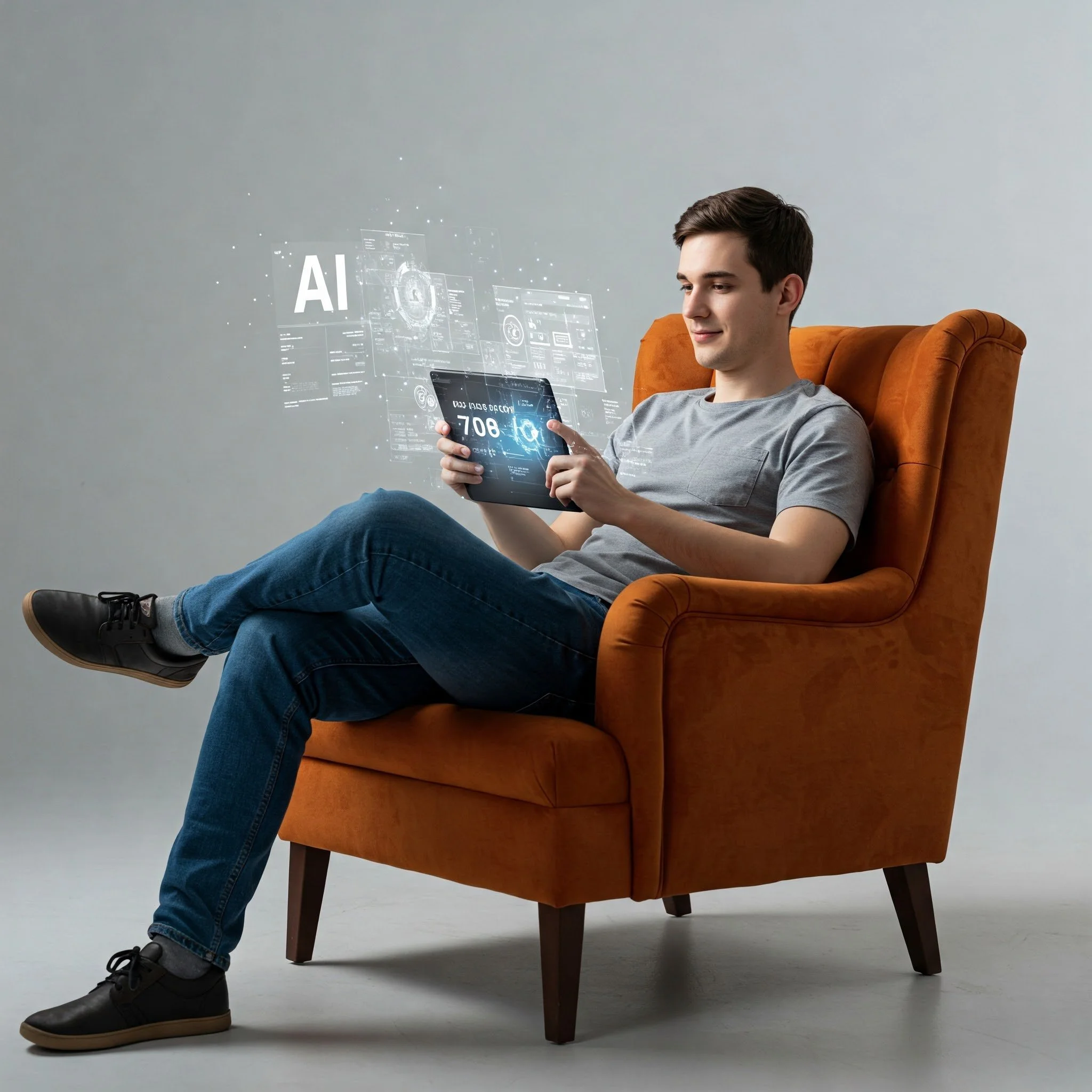AI Created It, But Who Owns It?
Ever used AI to generate an image?, write a story?, or even whip up some code?
It's amazing what Artificial Intelligence can do these days, opening up whole new creative possibilities. But it also raises a big, important question - When AI creates something, who actually owns the copyright?
It can be confusing, right?
recently, the U.S. Copyright Office has published guidelines around copyright for AI contents & getting this right away is essential for creators, businesses, and anyone using AI tools. You can explore this in detail in the official guideline document & in our recent video, "DON'T GET SUED: 5 AI Copyright Laws You MUST Know," but to make it easy to understand, we’ve broken this into 3 pointers.
1. Human Creativity is core for copyright on AI generated content
As Copyright is designed to protect stuff made by people. It rewards human imagination and effort. So, if something is generated only by AI, without a real creative push from a person guiding it or refining it significantly, it generally can’t be copyrighted on its own.
Simple Example: You ask an AI to "make a picture of a cat" and use the first image it spits out. That image itself likely isn't copyrightable. But if you draw or paint a cat, that's your copyright.
2. What about Generated content, where AI as a Co-Pilot or Letting It Fly Solo?
While deciding copyrightable AI content, How you use the AI makes all the difference. Think of it this way:
AI as Your Co-Pilot (✅ Copyright Possible):
Are you using AI like Photoshop, a grammar checker, or a brainstorming partner? If it's helping you bring your own creative idea to life, the final work can likely be copyrighted because your creativity is in the driver's seat.
For an example, A graphic designer uses AI for color ideas but personally selects, tweaks, and applies them to their original design concept. The final design is copyrightable due to the designer's input.
AI Flying Solo (❌ Copyright Unlikely for AI Part):
Is the AI doing the heavy creative lifting based just on a prompt? If you simply give it instructions and use the result directly, that specific AI-generated piece probably isn't protected by copyright.
like Typing "Generate a synthwave song," taking the resulting audio file, and using it with no changes. That specific song file isn’t protected by copyright.
3. What If You Mix Your Ideas with AI
Now let’s talk about hybrid creations, some parts created by AI & some parts by any human. Good news here! Even if you start with something AI-generated, the Copyright Office recognizes that your creative additions can be protected. If you take an AI piece and significantly modify it, adding your own original art, editing substantially, arranging it in a unique way, your contributions can be copyrighted.
Example: A writer uses AI to generate a rough story outline, but then extensively rewrites paragraphs, adds original characters, develops unique plot twists, and infuses their own voice. The final story, shaped by the writer's significant input, is copyrightable.
Okay, we've covered the details, but sometimes seeing things laid out simply is best. If you want a quick reference for the core U.S. Copyright Office guidelines on AI, here are the five key takeaways
| Copyright Guideline Takeaway | Description | Example |
|---|---|---|
| AI Can Be Your Tool | Using AI to assist your own creative work generally allows the human-authored result to be copyrighted. | Using AI to automatically clean up audio noise on a podcast you recorded and edited. |
| Human Creativity is Protected | In works mixing human and AI elements, the parts reflecting your original, creative expression are eligible for copyright. | Taking basic chords generated by AI, but then writing your own original melody and lyrics over them to create a unique song. |
| Pure AI Output Isn't Copyrightable (Usually) | Works created solely by AI without significant human authorship generally don't qualify for copyright protection on their own. | A website filled entirely with blog posts generated by AI using simple prompts, with no human editing or additions. |
| Copyright Assessed Case-by-Case | There's no simple formula; copyright eligibility depends on how much human creativity was truly involved in making that specific work. | An architectural design created with AI assistance might be copyrightable if the human architect made significant creative choices. |
| Just Writing the Prompt Isn't Enough | Simply telling the AI what to create (the prompt) doesn't automatically make you the "author" of the output for copyright purposes. | Prompting an AI to "create a logo for a coffee shop" and using the output without any creative refinement or modification. |
this will given you good idea about which content can be copyrightable cannot so let’s understand a bit more about how to apply this information.
If You're Creating:
Be the Artist, Not Just the Director: Use AI to enhance your vision, not just execute instructions.
Show Your Creative Process: If possible, keep drafts or notes showing your input and changes.
Make It Uniquely Yours: Add significant original touches, style, or substantial modifications to anything AI generates.
If You're Running a Business:
Know What You're Using: Be extra careful with purely AI-generated content for products, branding, or marketing.
Check Its Origins: Understand the copyright status before relying heavily on AI content. Is there sufficient human authorship?
Ask an Expert When Needed: For important commercial uses, consulting a lawyer familiar with copyright and AI is often a worthwhile investment.
For Everyone:
Stay Curious & Updated: This area of law is changing. Keep an eye on news from official sources like the Copyright Office.
Think About Authorship: Be mindful of where creative work comes from, whether you're consuming it or creating it.
Conclusion
AI is advancing rapidly, and the laws around it are still taking shape. But by understanding these fundamental principles, you can feel more secure using AI in your creative processes. As AI tools become more common, never forget that copyright law primarily values and protects your human input and originality. This AI space will keep changing, so staying updated on the rules and best practices is definitely a good idea,
Lastly, just wanted to ask, what do you think about this blog & its copyright status based on the pointer we’ve discussed above, let's know your thoughts in the comment section!….
That’s all for this blog, hope you like the captured insights & to explore more please refer to the references section. Thank you & keep learning keep growing.
Reference Links
Official US Copyright Guidelines - https://copyright.gov/AI/
Watch the full video here: https://www.youtube.com/watch?v=DCdb14HJY6E




